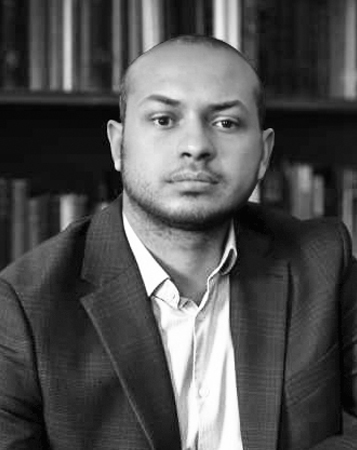On February 23, the UAE was removed from the Financial Action Task Force’s (FATF) Grey List, a watch list for jurisdictions under increased monitoring. The Middle East’s largest financial hub was added in 2020 following the FATF’s Mutual Evaluation Report on the UAE, issued after an on-site visit that identified deficiencies in the country’s AML and CFT regime.

Khaled Hassan
Notably, FATF highlighted the limited supervision of certain professions deemed particularly vulnerable to money laundering, including real estate agents and those dealing in precious stones and metals. They further noted the UAE’s limited enforcement of sanctions against individuals and entities designated by the US, EU, and UK, as well as shortcomings in international cooperation mechanisms concerning exchanges of information and joint investigations for AML/CFT. In relation to the latter, the country was also found to have inadequate risk assessment and identification methodologies.
The UAE’s inclusion on the Grey List was acknowledged by the country’s leadership and key economic partners as a major setback, leading the government to pay particular attention to addressing their AML/CFT deficiencies. Indeed, inclusion on the grey list causes increased scrutiny from foreign financial institutions and other businesses engaging with Emirati individuals and entities, especially for cross-border transactions, often leading to lengthier and costlier due diligence processes.
This is of particular significance to transactions involving both sectors vulnerable to money laundering and terrorism financing, as well as those linked to higher risk individuals, such as Ultra High Net Worth Individuals (UNHWIs) and those with political exposure. The listing also results in the UAE coming under enhanced monitoring and reporting by the FATF, which tends to involve the regular submission of reports tracking the implementation of the FATF’s action plan.
In response to its listing, the Emirates embarked on an expedited route to ensure its prompt removal, convening several high-level meetings that included relevant government ministers and other senior officials. Such meetings focused on implementing the FATF’s action plan, which was announced as completed in early 2024 ahead of the organization’s planned onsite visit.
This plan included increased cooperation with regional and international players in relevant investigations, concrete efforts to improve the authorities’ understanding of and mechanisms for detecting related risks, increased investigations and prosecution of cases involving suspected financial crime and terror financing, as well as providing additional funding to its Financial Intelligence Unit (FIU). Some examples of tangible changes made are reflected in the UAE tripling the number of money laundering fines it issues, sanctioning of non-compliant financial institutions, and conducting some high-profile arrests of individuals accused of financial crime.
Given the nature of the country’s economy and one of the Arab world’s most stable financial hub, the Emirates was not as directly impacted by the grey listing as other countries have been. At the same time, they place a high premium on its reputation in the international arena and just the stain of a grey listing appears to have been significant enough to exert notable and relatively swift efforts toward its removal. This is especially important considering that it has developed a reputation as a hub for sanctioned Russian nationals, with increased sanctions enforcement and fines for non-compliant institutions certainly able to affect the ability for such individuals to continue operating in the UAE.
Indeed, their removal and some of the actions taken was seen as able to boost investor confidence in the country and reduce some existing, limited barriers for trade and finance, particularly in relation to high-risk sectors which normally require increase due diligence and scrutiny under the grey listing.
Requirements for increasing cooperation with the UAE’s regional and international partners on financial crime via data sharing is likely to also provide a boost to the anti-financial crime community. This is of particular significance in light of the country’s regional standing as the Arab world’s leading financial hub (with substantial, increasing investments across the world), as well as solid infrastructure, which enables it to employ robust modern mechanisms in AML/CFT investigations. The Dubai International Financial Centre (DIFC), as well as Dubai and Abu Dhabi more generally, represent the region’s largest financial centers. The DIFC is home to more than 200 wealth and asset management companies, including 13 of the world’s top 25 wealth and asset managers.
This highlights both the significance of the UAE, the importance of its cooperation in investigations that involve the jurisdiction, and the need for its compliance to reach international financial standards. Their task now is to maintain the changes and standards that allowed for its removal from the grey list in order to ensure that it stays off of it – permanently.


